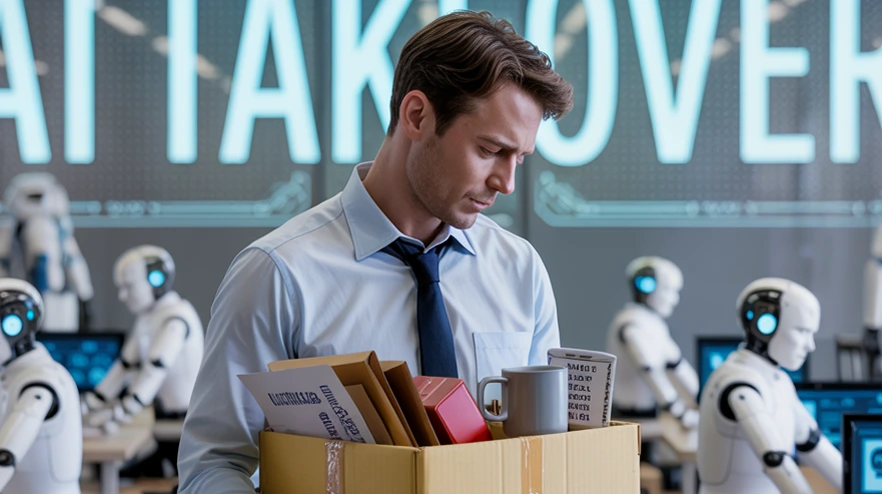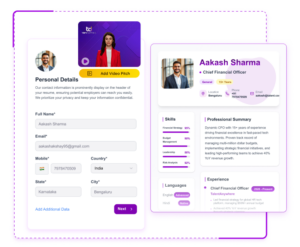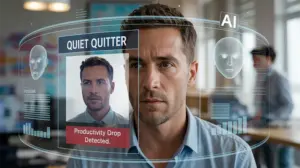Read summarized version with
Almost every other day, there’s another headline: “Mass Layoffs Due to AI.”
From tech giants to small enterprises, companies are cutting roles, not because of any crisis, but AI is automating many processes done by humans, making their work cheaper, faster, and more efficient.
And it is just the beginning. A recent report revealed that 41% of employers plan to reduce headcount further over the next 3–5 years due to increasing AI adoption.
As if layoffs were less overwhelming, CEOs are openly stating that “they will rely more on AI than humans”, and even “new hires must justify why they should be hired before an AI”.
So yes — AI is undeniably reshaping the workforce.
The good news is this is not the end of jobs. Beyond layoffs, lies the possibilities of:
- Human-AI collaboration
- Enhanced productivity & restored work-life balance
- More equitable, empowered future for every working professional
Keep reading — because beyond the panic lies a bigger picture. One where AI doesn’t replace employees, but helps them become better. One where those who ride the wave, not fight it, unlock new opportunities, better roles, and a future that actually works for job seekers, employees, and every working professional.
Automation Can’t Replace an Economy Built on People
An economy doesn’t run on automation; it runs on people. Think about this: if AI replaces everyone or even more than half of the professionals in this world, how will the economy survive? Because people who work, earn, spend, build, create, and ultimately drive demand.
The fear of AI replacing jobs is real and valid; it is not the full picture.
If companies cut too many jobs in the name of efficiency, they risk wiping out their own customers. If no one has an income, who’s left to buy their products or services? As per Okun’s Law, unemployment and GDP growth are inversely related to each other. For instance, if the unemployment rate rises by 1%, the GDP rate will get decreased by 2%.
Therefore, AI adoption approach has to meet a balanced economic rate. The governments and businesses have no choice but to choose the middle path, a grey zone, where:
- Jobs will evolve
- New roles will come
- AI acts as a co-worker rather than an enemy
For job seekers and working professionals, this is your window. You don’t have to fight against the rise of AI, rather you need to learn how to work with it. Repositioning yourself is the only skill you need to stay relevant in the AI age. Lean into the human side of work — creativity, empathy, leadership, and decision-making. The things AI can’t fully replicate.
Because at the end of the day, businesses still need people — not just to run, but to exist.
AI Is Opening Doors to Roles We Never Imagined
With the rise of AI, most enterprises have started exploring and adopting it to make their operations more efficient—leaving many professionals fearful about their job security.
Researchers predict that many white-collar and entry-level jobs may disappear—because machines will soon be able to handle tasks that require not just thinking and skills, but also consistency, speed, and decision-making at scale.
However, here’s the full picture: AI is expected to create more jobs than it displaces.
While it’s true that an estimated 92 million jobs may vanish by 2030, there’s an even more promising upside: around 172 million new roles are projected to emerge, driven by the rising demand to build, implement, and support AI systems.
And these new opportunities aren’t limited to techies or coders—many of them will cater to professionals without deep technical expertise, opening doors for a much wider talent pool to participate in the AI-driven future.
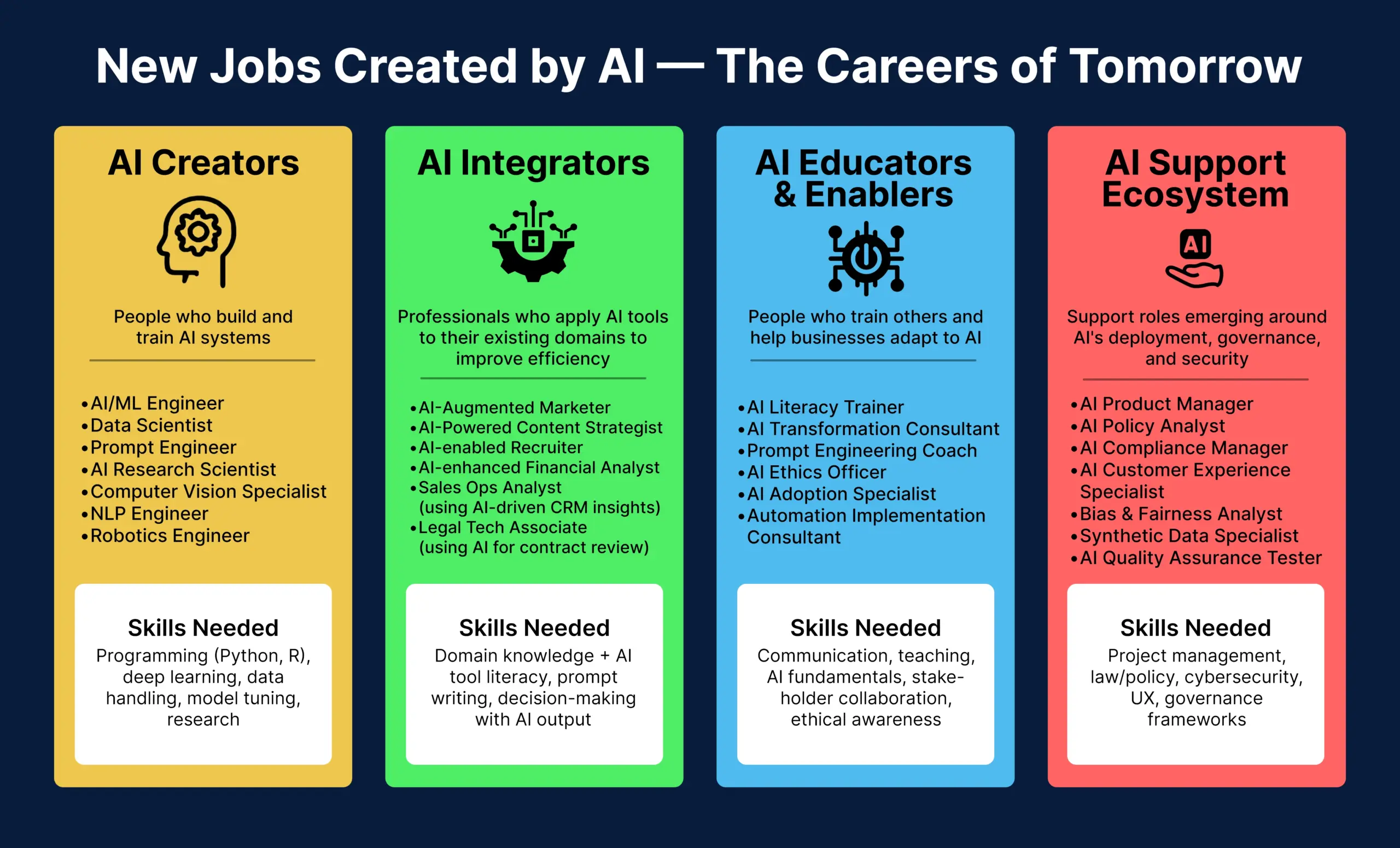
Three Core Domains Define the Future of AI Careers
1. AI Creators
These are the engineers, data scientists, and researchers who design, build, train, and maintain AI models and systems.
Requires: Strong technical knowledge in AI/ML, programming, data structures, and problem-solving.
2. AI Integrators
These are professionals who leverage AI tools in their day-to-day work to boost productivity, automate tasks, and enhance outcomes across fields like marketing, finance, HR, and more.
Requires: A clear understanding of how to apply AI tools and platforms effectively within one’s domain.
3. AI Educators & Enablers
These roles focus on guiding individuals, teams, or organizations on how to use AI responsibly—through training, process automation consulting, implementation guidance, and ethical oversight.
Requires: Communication skills, technical familiarity, and domain expertise to explain, consult, and coach on AI usage.
With the current AI adoption curve, numerous new roles and skills will be needed to ensure AI technology is used seamlessly around the globe—creating talent globalization, cross-border collaboration, skill democratization, and more inclusive career opportunities among working professionals.
Partnering With AI Is the New Productivity Hack
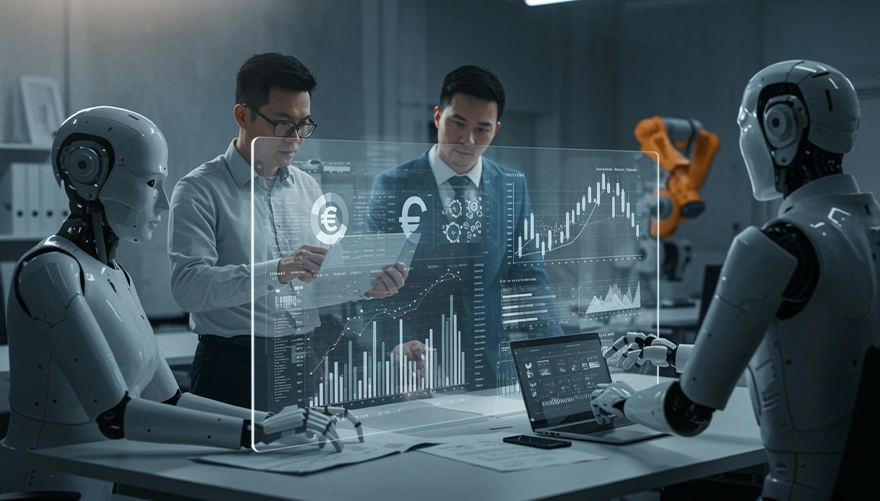
Recently Forbes revealed that 77% of the working professionals who leverage AI got higher-paying jobs than 48% who don’t.
Maybe your colleagues or managers don’t appreciate it—or even look down on you—if you use AI at work. But latest studies say working professionals are experiencing up to 80% increase in productivity when they use AI effectively.
The key is to make AI a part of your everyday work. Start learning AI tools just like you once learned other tools that you now use daily.
For instance, if you’re a recruiter who needs to do bulk hiring for a project, you can use AI hiring tools like talentanywhere.ai to automate the end-to-end hiring process.
The AI tool will:
- Write the job description for you
- Select best-matching profiles
- Shortlist hundreds of resumes in minutes
- Conduct initial screenings
And allow only the most suitable candidates to reach you for the final round. Imagine how much time and effort you save per hire. As a recruiter, you’re more likely to close more positions for the project compared to your colleagues who don’t use AI tools.
This way, you’ll stay more relevant and competitive in today’s job market than others on your team.

Stay ahead of the curve and become the recruiter every company needs — faster, sharper, and future-ready.
Being Human Is Still Your Superpower

You have probably asked yourself: “If AI can do almost everything, what will be left for me?”
It’s a fair question. Yes, AI can write content, generate code, analyze data, summarize reports—even answer emails. But here’s the truth: AI still needs humans.
Businesses know that behind every smart system, human oversight is critical—especially for quality control, compliance, decision-making, and risk management. Automation might reduce the number of people needed for a task, but it can’t eliminate the human layer completely.
Think about it: when it comes to high-stakes decisions—like seeing a doctor, hiring a lawyer, or trusting a financial advisor—who would you trust more, a robot or a real person?
In fields where a minor mistake can cost a life or a lawsuit, human trust wins. That’s why even the most advanced AI tools are seen as assistants, not replacements.
And here’s the bigger picture—not all hope in the AI era belongs to coders and engineers. In fact, non-technical skills are rising in value. Soft skills (leadership, emotional intelligence, problem-solving, critical thinking, decision-making, and agility) become your unique power in the AI-driven world that will make you relevant today and beyond. A Wiley survey revealed that 80% of professionals believe that soft skills become more important than ever as AI evolves with time.
Canva’s global head of talent said it best: “Focus on human and nontechnical skills.” Creativity, ethical thinking, empathy, storytelling, and emotional intelligence, these qualities machines still can’t replicate”.
So, as AI evolves, focus on soft skills and creativity to bring your human essence and power into professionalism.
AI Is Rewriting the Rules of Job Hunting

Job seekers can use the power of AI in their favor to accelerate and ease out their job search journey.
Traditional methods like resume writing, manually applying to jobs, endlessly scrolling through listings, and waiting for callbacks are not only time-consuming but also becoming less effective in today’s competitive job market.
A recent study found that job seekers utilize AI in these areas of job hunting: searching for companies (21%), preparing for interviews (31%), writing application materials (41%), and assessing salary as per role (8%). The results are also fascinating as 54% job seekers believe that using AI tools (for example AI resume builder, ChatGPT) has helped them to improve their chances of passing initial screening processes.
Therefore, AI—which has become one of the major reasons for layoffs—can help you land jobs faster by:
- Building ATS-friendly resumes in minutes
- Drafting compelling cover letters
- Tailoring your resume for each job description
- Matching with roles that fit your skills and experience
- Assessing skill gaps
- Preparing smartly for interviews
- Advising you on salary negotiations

Land your dream job faster or excel in your current role with AI-powered tools
To start with, you can use free tools like talentanywhere.ai, designed to simplify your job search by understanding what most platforms miss. Create a free account and access powerful AI tools to help you:
- Build professional resumes and cover letters
- Create interactive CVs
- Boost your existing resume
- Assess skill gaps
- Get personalized learning recommendations
- Match with the right jobs
- Prepare for interviews on demand
Since most of today’s job portals are just resumes and job aggregators, talentanywhere.ai stands out by not only helping job seekers land jobs faster but also supporting professionals throughout their entire career journey.
Read more: How AI-Enhanced Resumes Are Getting 3X More Callbackss
Final Thought: Possibilities Beyond layoffs
Artificial Intelligence is one of the most powerful innovations in humankind, poised to transform the world like never before. As per ongoing trends, it is evident that AI will impact the current job market and lead to layoffs — something that has already begun.
But this is just the beginning of AI. Beyond layoffs lies the greatest possibilities — to reimagine careers, unlock human potential, and create more meaningful work for every working professional.
Although no one can predict exactly how the world and jobs will evolve once AI reaches its full potential, it’s safe to say there will be a massive upsurge in opportunities for professionals to reinvent themselves, stay relevant, and thrive in new-age roles.
Start learning AI tools to enhance your current job tasks. Take a short course on AI literacy or prompt writing to strengthen your understanding of how AI works. Keep your resume up to date, showcasing AI-relevant skills to stand out. Solve real-world use cases and build a portfolio that reflects your adaptability. Prioritize working in companies that embrace human-AI collaboration and give you the space to learn and grow your AI capabilities.

Stop scrolling and start landing. Use AI to match with the right roles, build standout resumes, and prep for interviews — all in one place.
FAQs
Are AI layoffs actually happening, or is it hype?
How to prepare for AI workplace disruption?
1.Learn how to use AI tools like ChatGPT, Copilot, or industry-specific platforms. 2.Take short courses in AI literacy or prompt engineering. 3.Update their resumes with AI-relevant skills. 4.Use AI to enhance their daily workflow. 5.Focus on uniquely human skills like leadership, creativity, problem-solving, and emotional intelligence. 6.Adaptability and continuous learning are key.
How will AI affect employment trends?
1.AI-assisted job functions 2.Cross-functional roles 3.Greater emphasis on AI-relevant skills in resumes 4.Soft skills and human–AI collaboration becoming central to modern jobs
Which industry has the most layoffs due to AI?
How quickly will AI replace jobs?
talentanywhere.ai Blog
Explore insights on job readiness, global hiring trends, AI-powered recruitment, and career growth strategies. Our blog brings you practical tips, product highlights, expert advice, and success stories to--empowering job seekers, recruiters, and businesses to connect with the right talent, anywhere.


